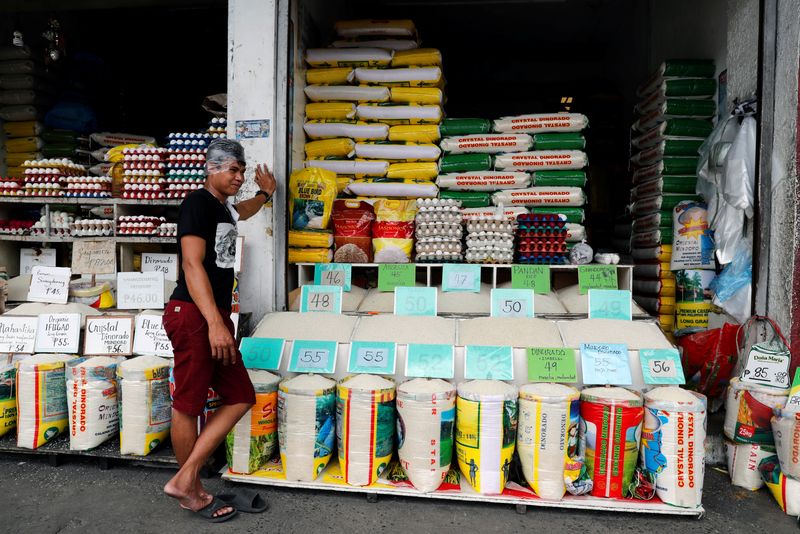Select Language

By Neil Jerome Morales and Mikhail Flores
MANILA (Reuters) -Philippine annual inflation slowed to a seven-month low in August as price increases on food and transport costs moderated, the statistics agency said on Thursday, giving the central bank room to further ease rates.
The consumer price index (CPI) rose 3.3% in August from a year earlier, below the previous month's 4.4% rise, bringing average inflation to 3.6% in the first eight months of the year, well within the central bank's 2% to 4% comfort range.
Last month's inflation was the slowest since the 2.8% print in January.
Economists in a Reuters poll expected inflation of 3.6%.
The core inflation rate, which strips out volatile food and energy prices, also slowed, to 2.6% last month.
Rice inflation, which accounts for nearly a tenth of overall inflation, eased to 14.7%, the slowest since October 2023. Rice prices could further ease in the coming months, national statistician Dennis Mapa told a briefing.
"It will further go down to single digits because of base-effects," Mapa said.
Philippine President Ferdinand Marcos Jr lowered tariffs on rice to 15% from 35%, but the expected easing in prices was slower than expected.
The Philippine central bank said on Thursday lower rice tariffs would help ease inflation in the coming months. Risks to inflation continued to tilt on the downside this year and the next, with a "slight tilt to the upside" for 2026.
"Going forward, the Monetary Board will continue to take a measured approach in ensuring price stability," the Bangko Sentral ng Pilipinas (BSP) said in a statement.
The August print could further allow the central bank to further ease rates, according to Nicholas Mapa, economist at Metropolitan Bank and Trust Co.
The door to further cuts this year "remains wide open," Mapa said on social media.
The BSP cut its benchmark borrowing rate by 25 basis points to 6.25% in August, its first rate cut since November 2020.
BSP Governor Eli Remolona flagged there is room for one more interest rate cut this year.

